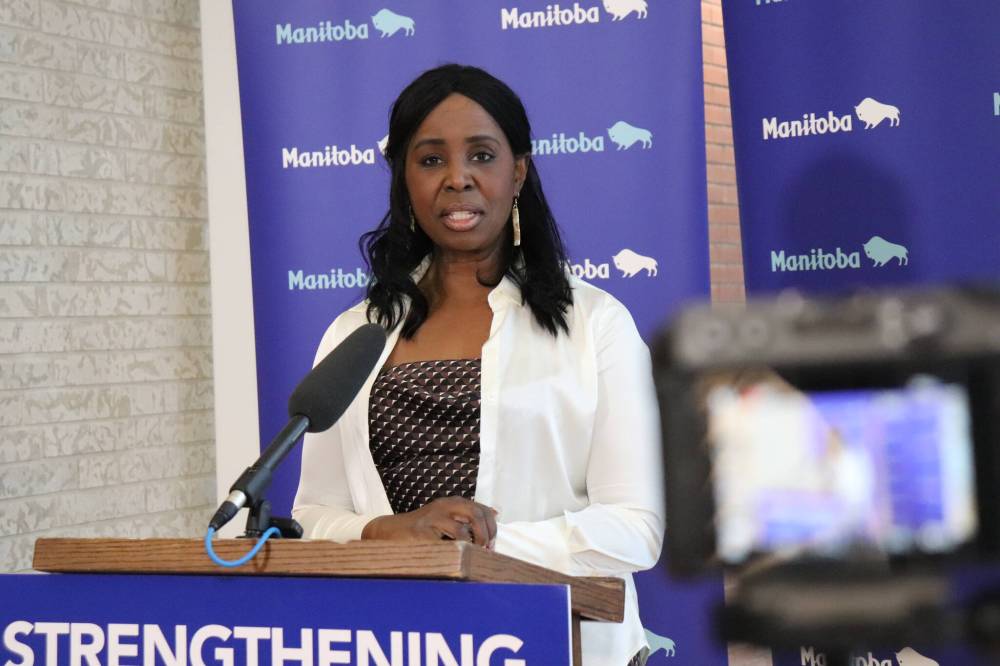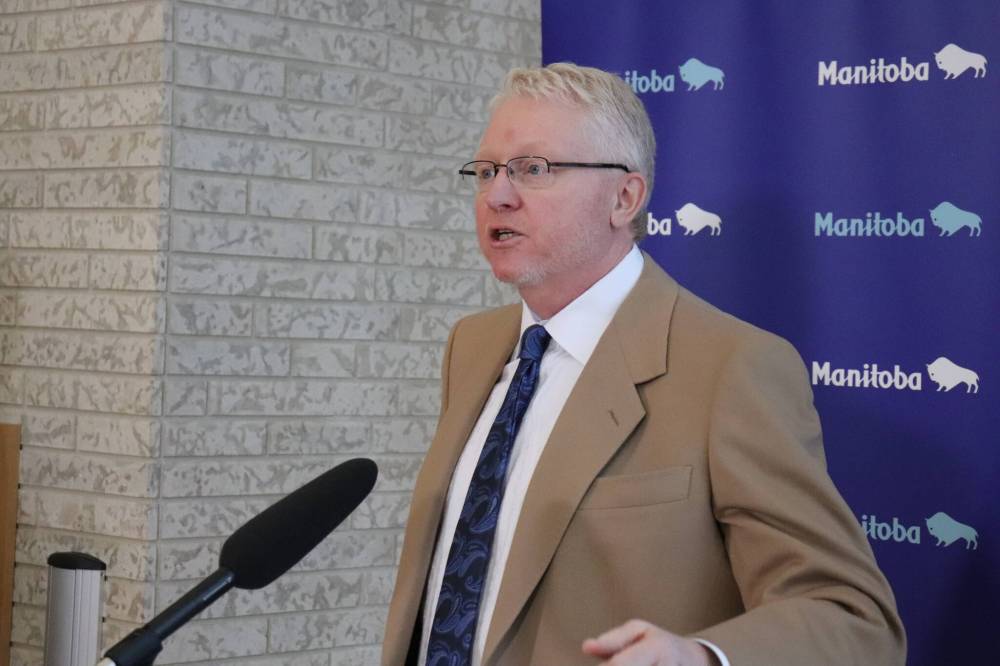Virtual triage system to improve patient transfers
Advertisement
Read this article for free:
or
Already have an account? Log in here »
To continue reading, please subscribe:
Monthly Digital Subscription
$0 for the first 4 weeks*
- Enjoy unlimited reading on winnipegfreepress.com
- Read the E-Edition, our digital replica newspaper
- Access News Break, our award-winning app
- Play interactive puzzles
*No charge for 4 weeks then price increases to the regular rate of $19.00 plus GST every four weeks. Offer available to new and qualified returning subscribers only. Cancel any time.
Monthly Digital Subscription
$4.75/week*
- Enjoy unlimited reading on winnipegfreepress.com
- Read the E-Edition, our digital replica newspaper
- Access News Break, our award-winning app
- Play interactive puzzles
*Billed as $19 plus GST every four weeks. Cancel any time.
To continue reading, please subscribe:
Add Free Press access to your Brandon Sun subscription for only an additional
$1 for the first 4 weeks*
*Your next subscription payment will increase by $1.00 and you will be charged $16.99 plus GST for four weeks. After four weeks, your payment will increase to $23.99 plus GST every four weeks.
Read unlimited articles for free today:
or
Already have an account? Log in here »
Hey there, time traveller!
This article was published 14/12/2022 (1091 days ago), so information in it may no longer be current.
STEINBACH — Manitoba Health hopes to bolster rural care by introducing a virtual triage service.
The Virtual Emergency Care and Transfer Resource Service, a communications resource for emergency care, will be launched in the spring.
“Our government understands that Manitobans need concrete action and innovative solutions,” Health Minister Audrey Gordon said.

“I have been meeting with front-line emergency department staff… and they shared the need to co-ordinate transfers.”
The service will allow health-care staff to consult with a team of experts who can provide emergency medical guidance and co-ordinate transfers to ensure patients go to facilities capable of treating them.
“We don’t want an individual transferred to one location and relocated to another location,” Gordon said.
Gordon made the announcement at the Bethesda Regional Health Centre in Steinbach Wednesday.
The service has an estimated annual budget of $5.5 million and will operate with an emergency physician, an advanced care paramedic and an advance practice respiratory therapist on staff 24/7. It will also include communications centres in Winnipeg and Brandon, and a handful of co-ordinators.
The medical experts will work part of their time with the service while maintaining their regular duties.
“It won’t necessarily take staff away from the bedside. I think a lot of the physicians… are willing to do this kind of work in addition to the work they’re doing,” said Shared Health chief medical officer Dr. Rob Grierson.
“I think everybody recognizes that this is a need… this small investment will actually solidify a lot of health care across the province.”
It will be particularly valuable for patients in remote areas who may require air or ground transport, he said.
Under the current triage system, before an emergency patient is transferred to a facility, individual health professionals must organize their transport. The process often involves making numerous phone calls to find a facility and physician capable of treating a patient’s specific needs, Grierson said.
“With this new model of care, emergency care teams can spend less time determining where they should (take) a patient, less time arranging the transport of patients and more time focusing on the care of their patients,” he said.

TYLER SEARLE / WINNIPEG FREE PRESS
“It won’t necessarily take staff away from the bedside. I think a lot of the physicians… are willing to do this kind of work in addition to the work they’re doing,” said Shared Health chief medical officer Dr. Rob Grierson.
The initiative is part of the $200-million action plan announced by the Tories last month, with the promise to “retain, train and recruit” staff to strengthen the provincial healthcare system.
Gordon was unable to provide an estimate on how much has been spent since it launched.
The province set a hiring target of 2000 new health professionals and the plan featured an assortment of financial incentives, including a weekend wage premium for nurses, which began Nov. 18.
“What I’m hearing anecdotally is that the weekend premium is showing some really, really good results,” Gordon said.
She said more announcements are planned for early in the new year.
The service is expected to be in place by May in anticipation of the busy summer trauma season. At launch, it will serve urgent care centres, rural emergency departments, nursing stations and paramedics, but the province plans to expand it in the future, Gordon said.
tyler.searle@freepress.mb.ca
History
Updated on Wednesday, December 14, 2022 8:24 PM CST: Adds missing word to sentence


